Rice Farming with NERICA Begins — Sharing Japanese Agricultural Techniques in the Water-Rich Area of Sogeri —
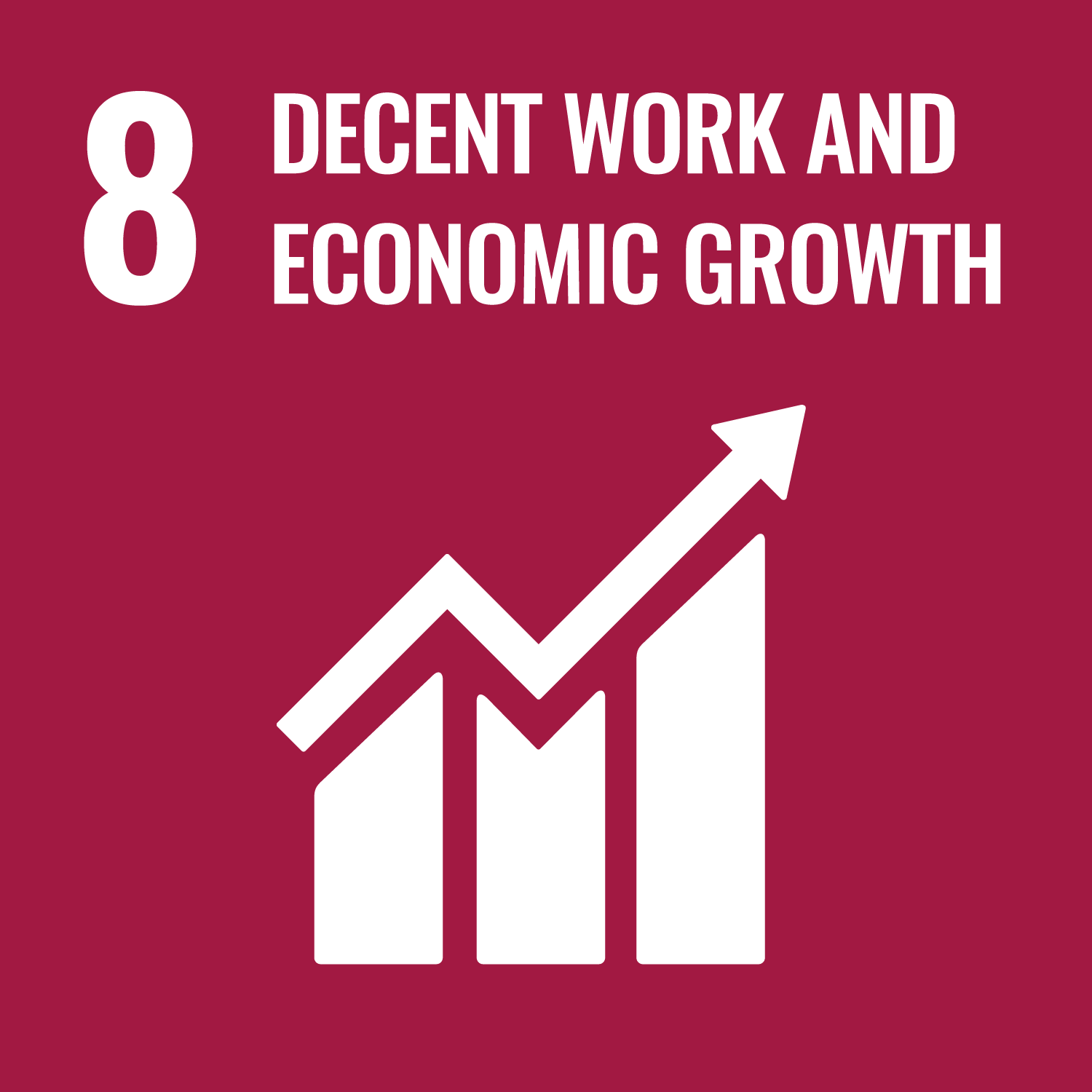
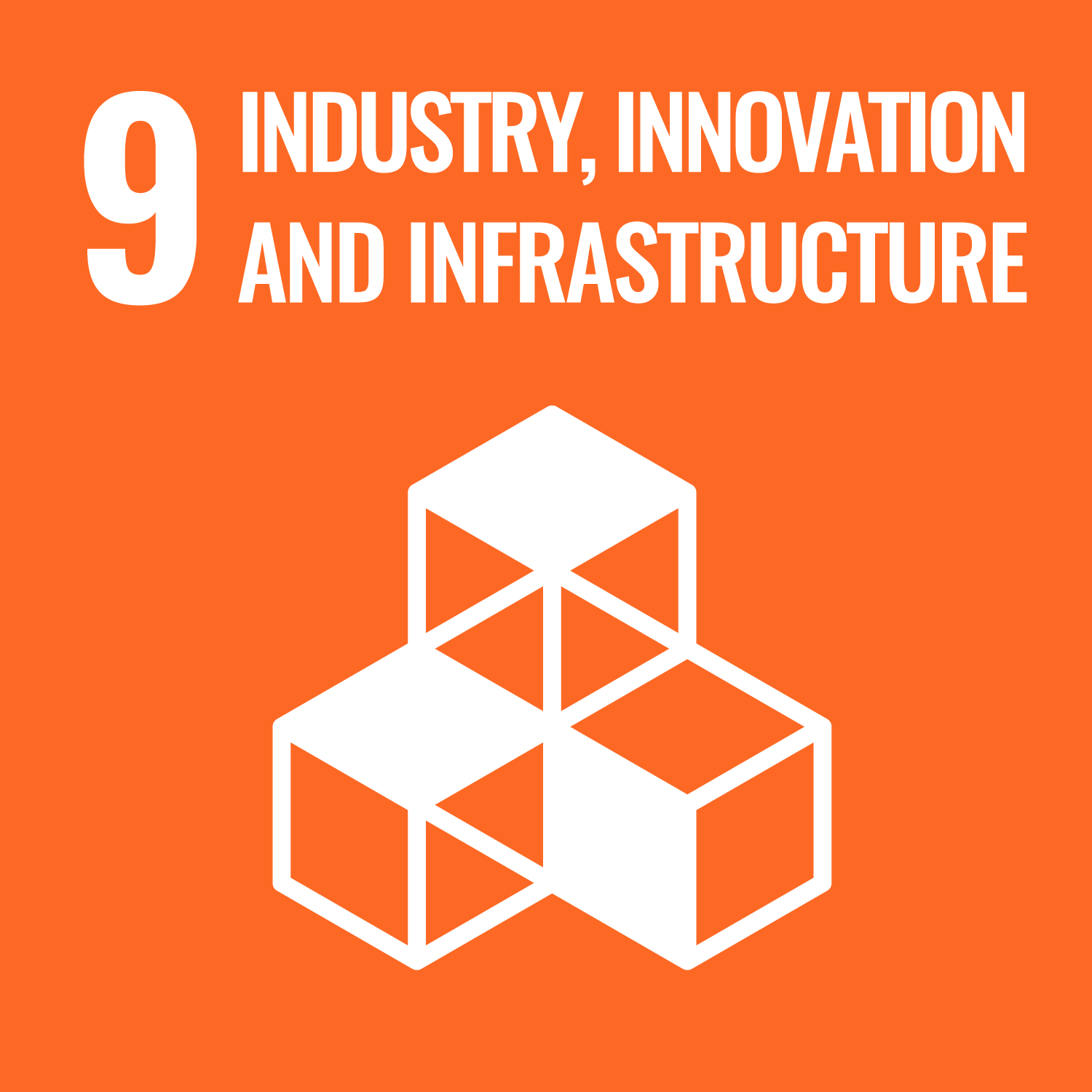

2025.06.16
JICA Volunteer Mr. Kento Suzuki (assigned as a vegetable cultivation instructor) implemented a rice farming practicum at Iarowari Agro-Technical Secondary School, located in Sogeri Central Province. The practicum featured NERICA upland rice, a variety known for its drought resistance and suitability for regions without irrigated paddy fields.
This initiative was developed following a JICA agricultural sector workshop. Mr. Suzuki guided students through the full farming process, including land preparation, seed soaking, nursery transplanting, main field transplanting, and watering. JICA Volunteer Mr. Kento Suzuki (assigned as a vegetable cultivation instructor) implemented a rice farming practicum at Iarowari Agro-Technical Secondary School, located in Sogeri Central Province. The practicum featured NERICA upland rice, a variety known for its drought resistance and suitability for regions without irrigated paddy fields.
This initiative was developed following a JICA agricultural sector workshop. Mr. Suzuki guided students through the full farming process, including land preparation, seed soaking, nursery transplanting, main field transplanting, and watering.

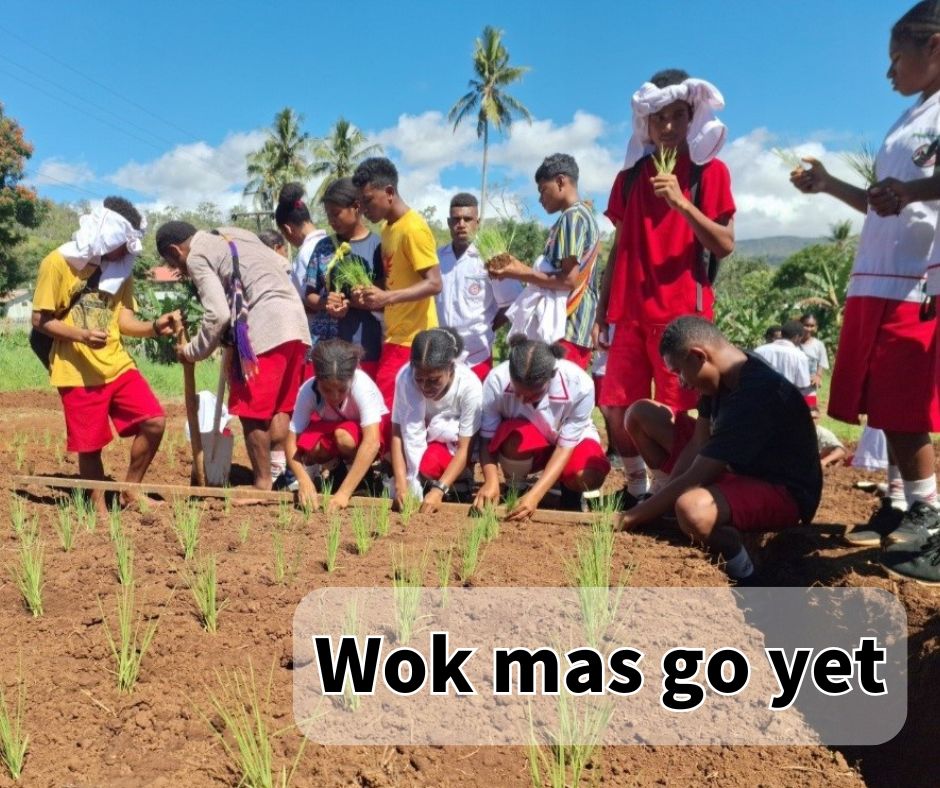
Seeds Provided Through PNG–Japan Cooperation
The rice seeds used in this practicum were provided by Mr. Dickson Benny, a scientist with National Agricultural Research Institute (NARI) who had participated in a JICA training program. Mr. Benny attended the JICA Short Term Training (10 months) on Vegetable Production Technology for Livelihood Improvement of Small-Scale Farmers at JICA Tsukuba International Center. This is a strong example of how personal connections between PNG and Japan continue to support field-level agricultural education.


The Importance of Rice in School Meals
The school has approximately 700 boarding students, and rice is served three times a day. The total daily rice consumption reaches about 180 kilograms. Although each student pays a yearly meal fee of 250 kina, this amount is insufficient, and the meal program is supported by government subsidies.
Rice is a practical choice for school meals due to its short cooking time, long storage time and suitability for large-scale preparation.
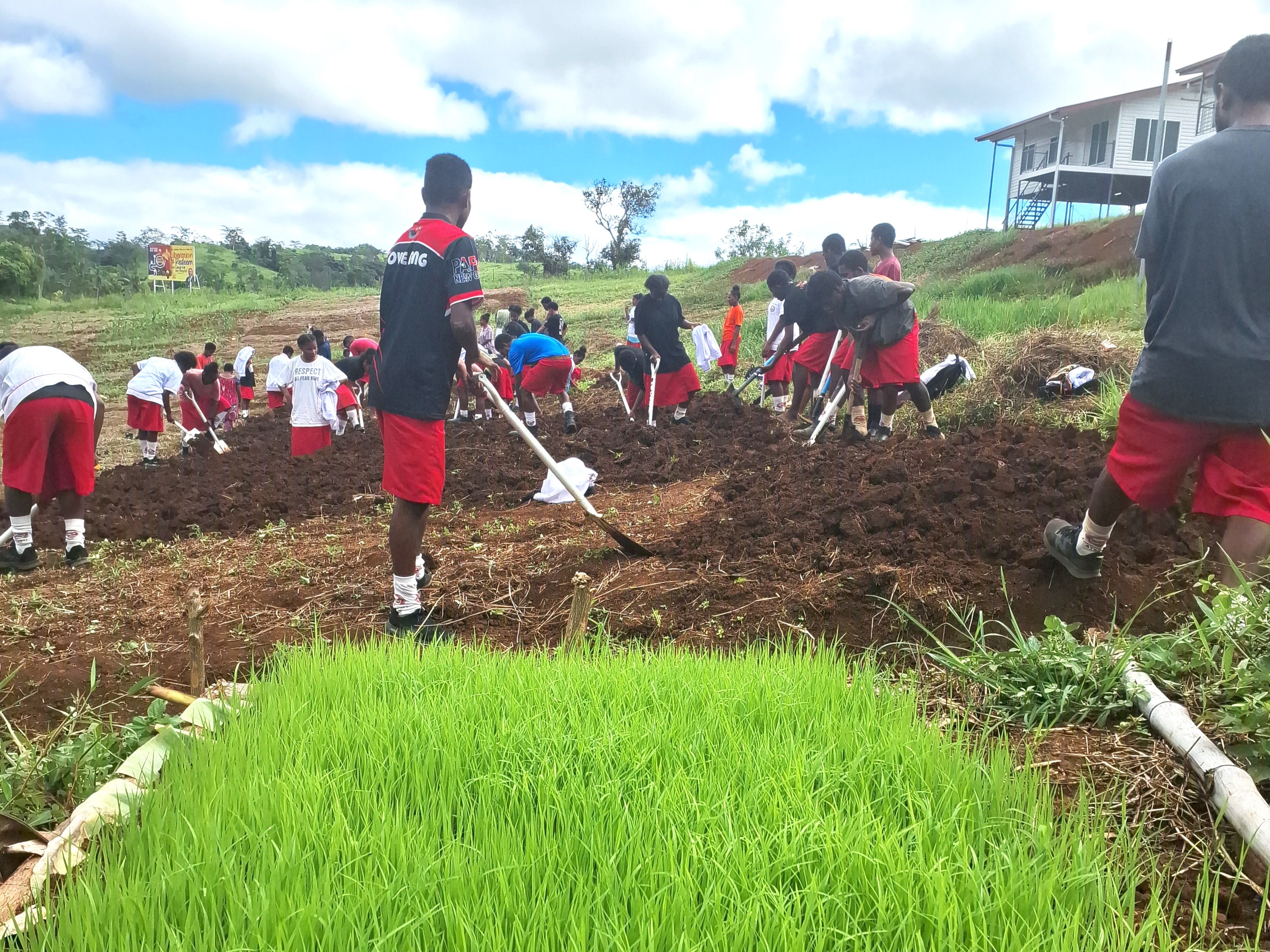
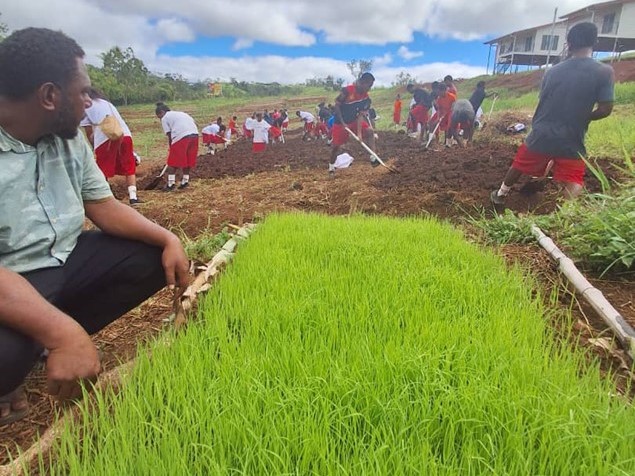
A New Challenge in a Water-Abundant Region
The Sogeri region is known for its rich water resources and is often referred to as “the water reservoir of the capital.” The area is said to support three rice harvests per year, making it ideal for upland rice cultivation. Students, teachers, and residents have shown high interest in the project.
Mr. Suzuki had hoped to try rice farming since his arrival in PNG, and he expressed his joy in seeing this activity realized through NERICA rice.
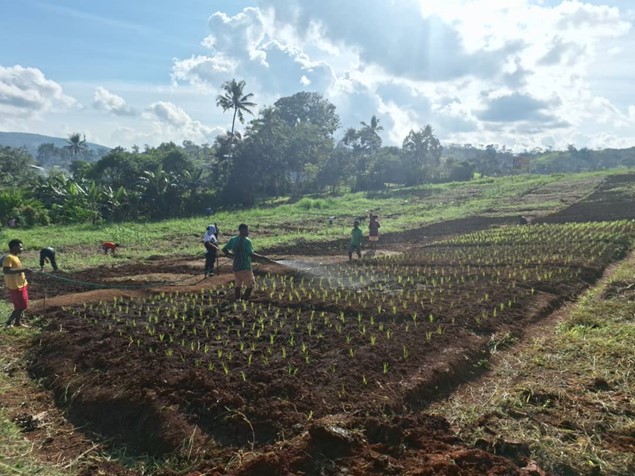
Ensuring Sustainability Beyond the Assignment
Mr. Suzuki’s assignment is scheduled to end just before or shortly after the rice harvest. To ensure the activity can continue, he is preparing local teachers by using the Upland Rice Handbook, a technical resource developed through a JICA technical cooperation project.
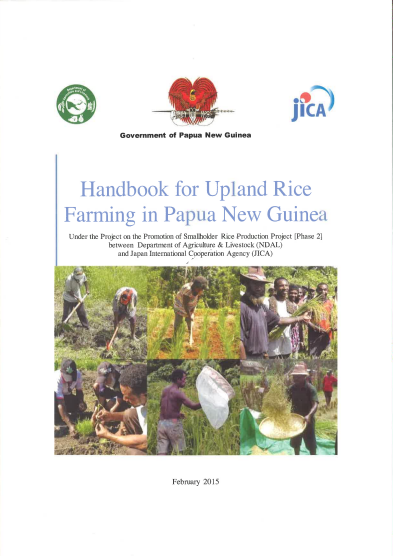
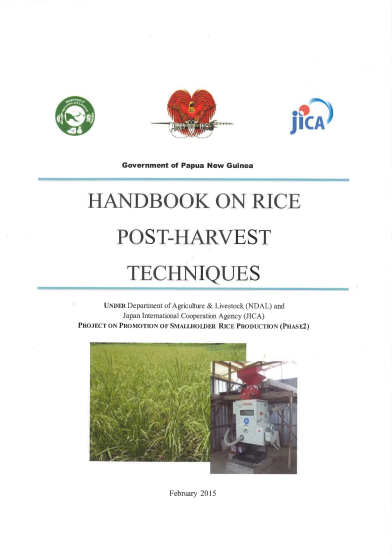
Through technical assistance and human resource development, Mr. Suzuku Kento is contributing to the promotion of sustainable agricultural education in Papua New Guinea.
Related Link
・A Small Step to Protect the Ocean’s Future — PNG Students Join Beach Cleanup on World Environment Day
・ Learning the Importance of Environmental Conservation – Sogeri Primary School’s Educational Field Trip
・Second Joint Coordination Committee Meeting for Phase 2 of EITI Project
Please also visit our Facebook for our latest activities and events news
JICA Facebook Page
scroll